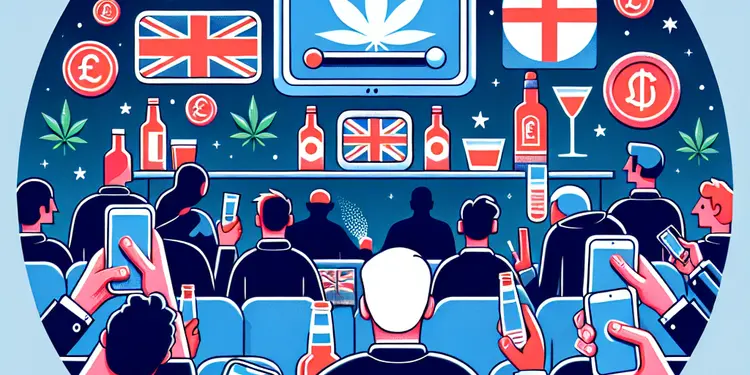
Find Help
More Items From Ergsy search
-
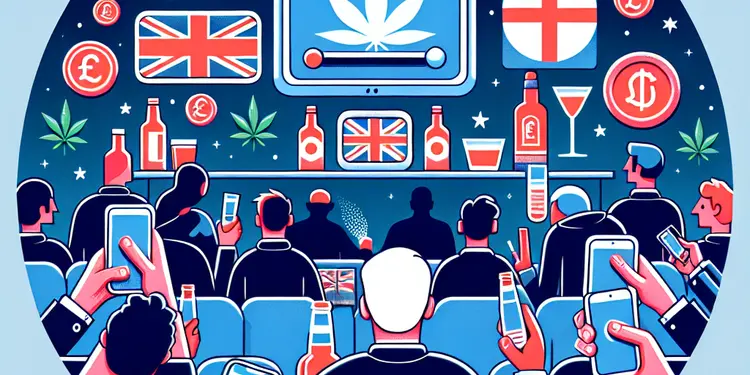
What is the role of peer pressure in binge drinking?
Relevance: 100%
-
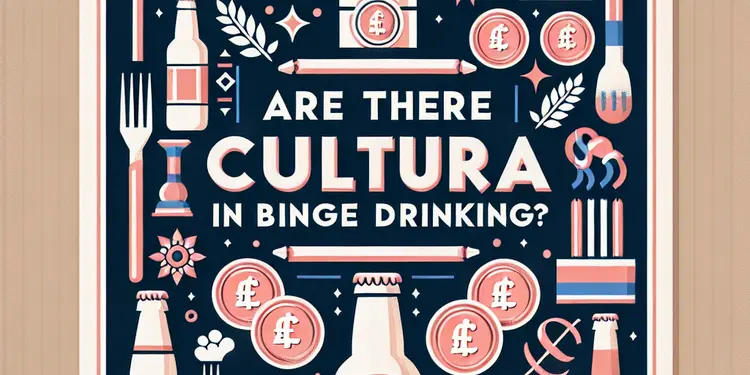
Are there cultural factors in binge drinking?
Relevance: 67%
-
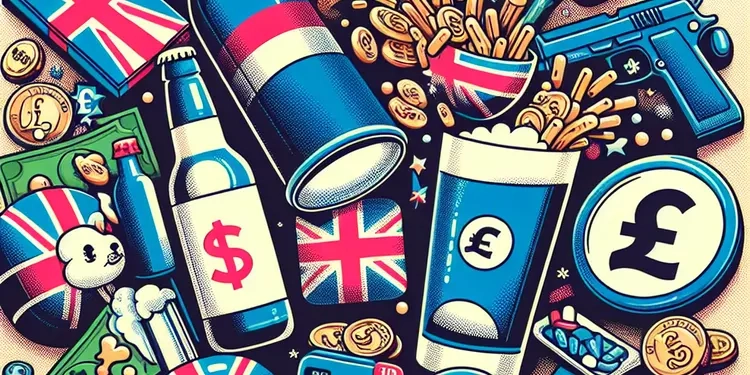
What is binge drinking?
Relevance: 64%
-

How is binge drinking typically defined?
Relevance: 64%
-
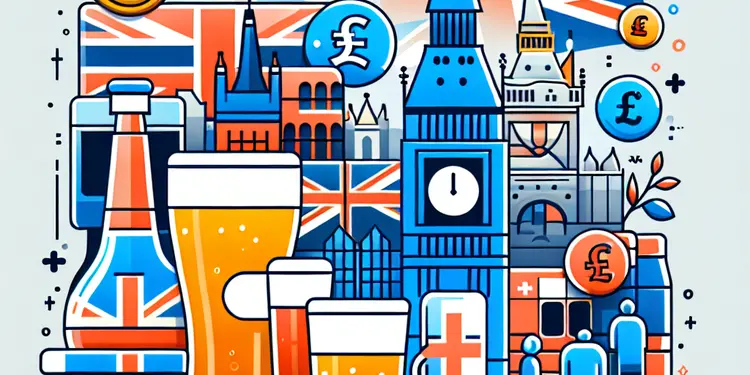
Why is binge drinking common among young adults?
Relevance: 63%
-
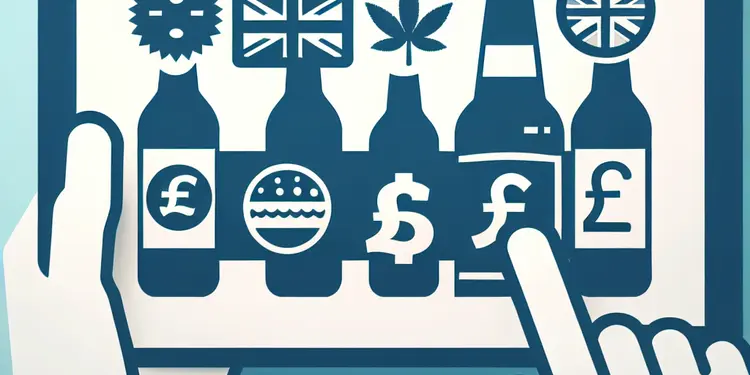
How can one reduce the risk of binge drinking?
Relevance: 61%
-
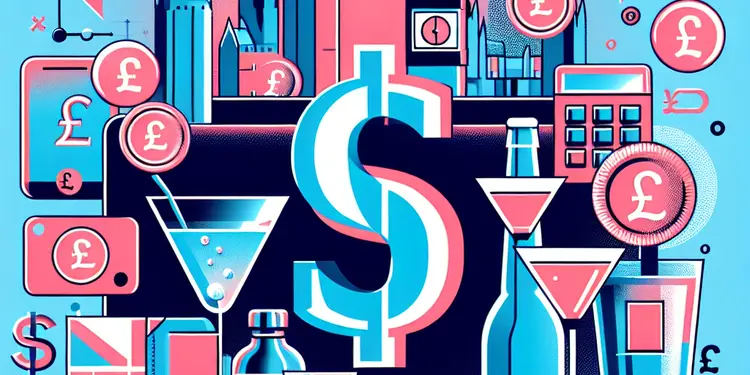
What are the social consequences of binge drinking?
Relevance: 60%
-
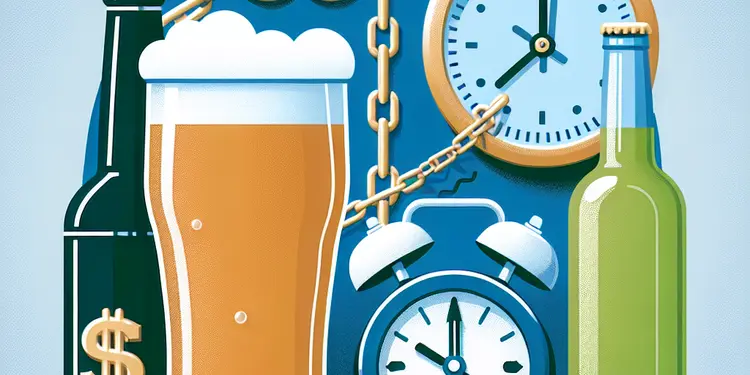
Can binge drinking lead to addiction?
Relevance: 59%
-
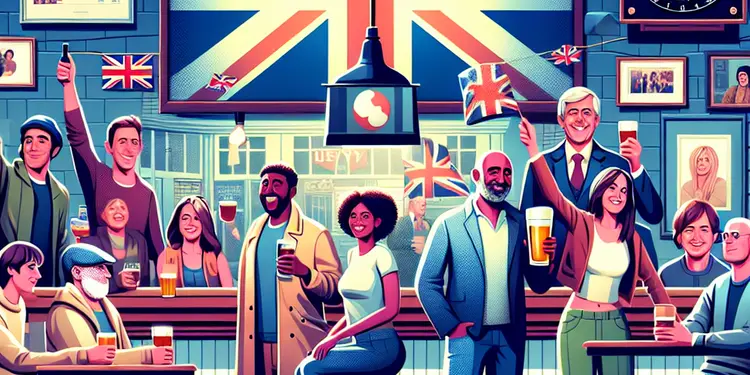
Is binge drinking more common in any specific demographic?
Relevance: 58%
-
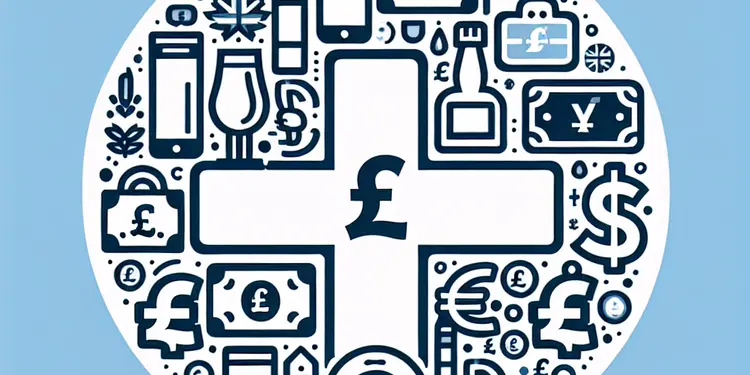
What can be done to prevent binge drinking?
Relevance: 56%
-
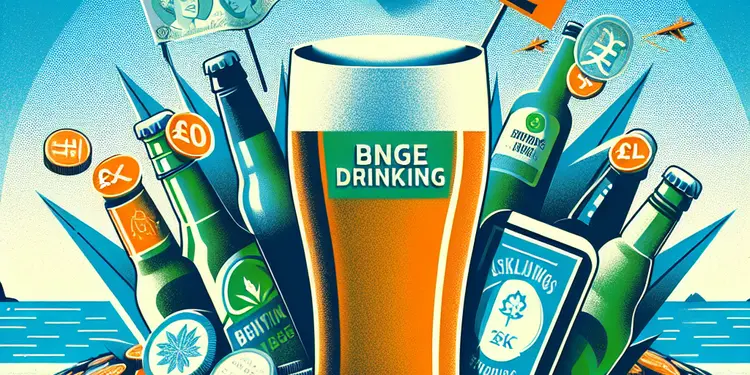
What are the risks associated with binge drinking?
Relevance: 55%
-
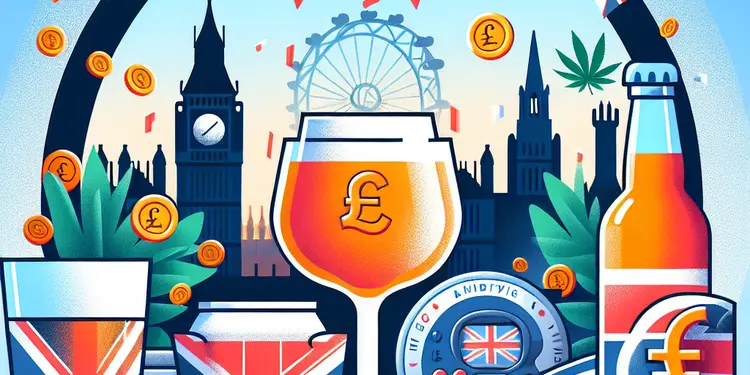
Can binge drinking affect physical health?
Relevance: 54%
-
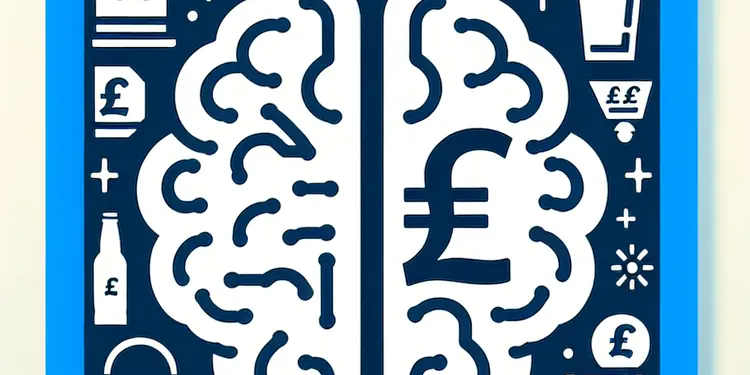
How does binge drinking affect the brain?
Relevance: 54%
-
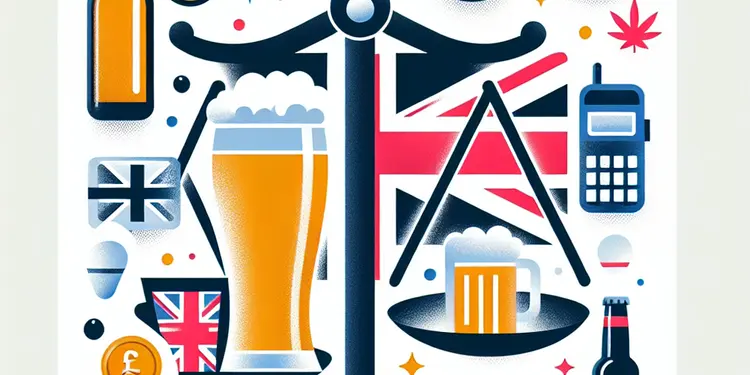
How does alcohol tolerance relate to binge drinking?
Relevance: 53%
-
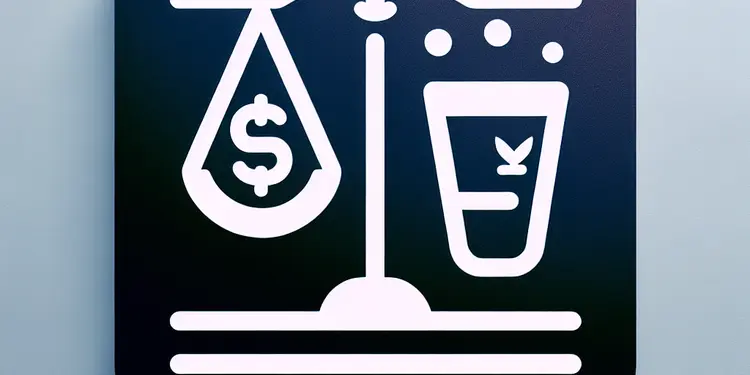
Are there any laws against binge drinking?
Relevance: 52%
-
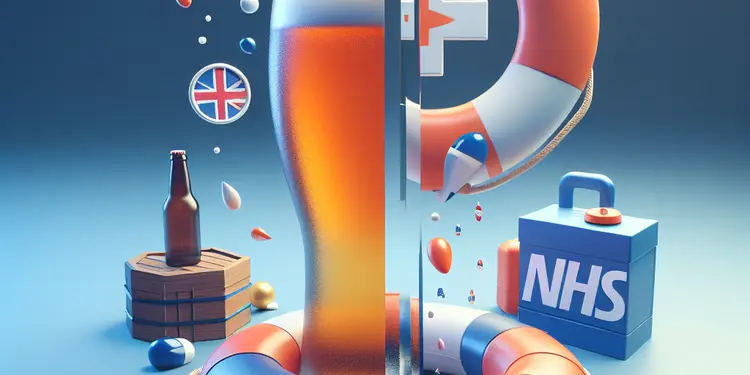
What resources are available for someone struggling with binge drinking?
Relevance: 52%
-
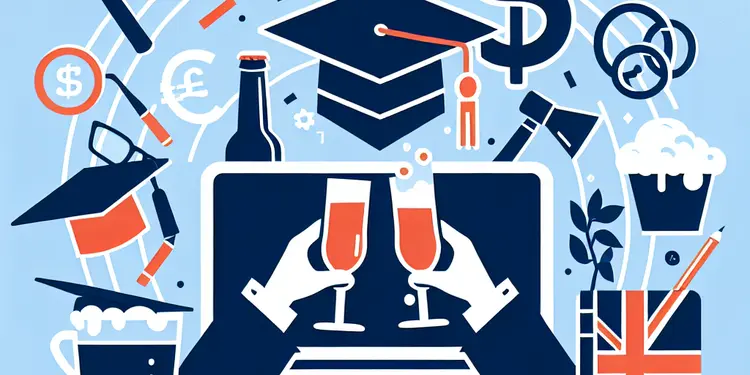
How does binge drinking impact academic or work performance?
Relevance: 50%
-
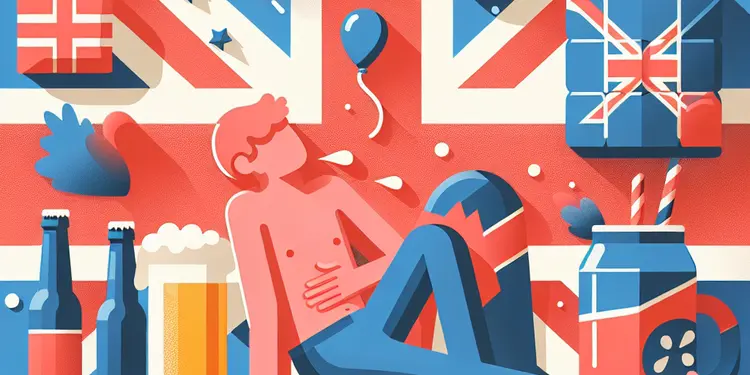
How does binge drinking affect mental health?
Relevance: 49%
-
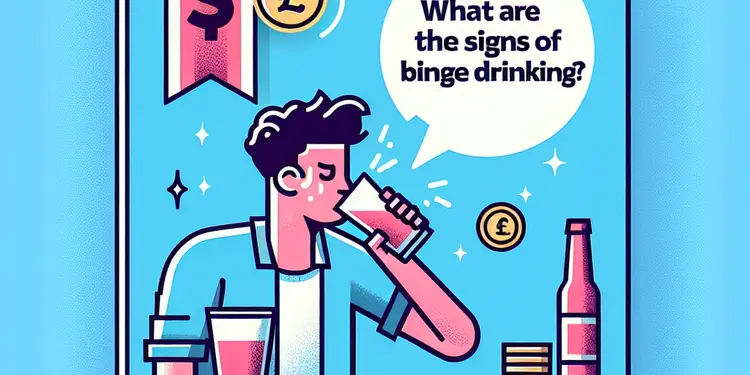
What are the signs of binge drinking?
Relevance: 41%
-
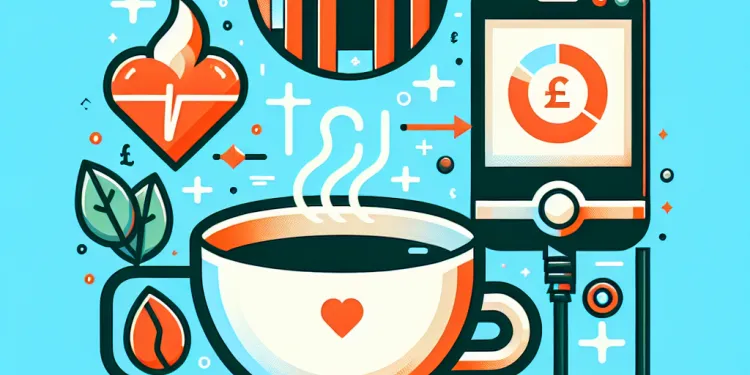
How soon after drinking coffee can blood pressure be affected?
Relevance: 32%
-
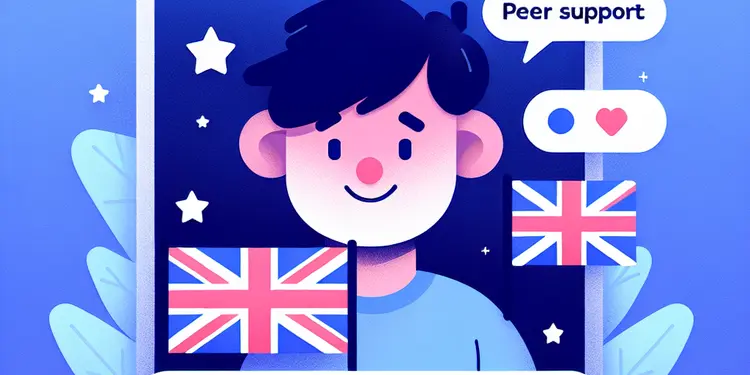
What is the role of peer support in preventing grooming?
Relevance: 31%
-

What are peer support groups for community helpers?
Relevance: 31%
-
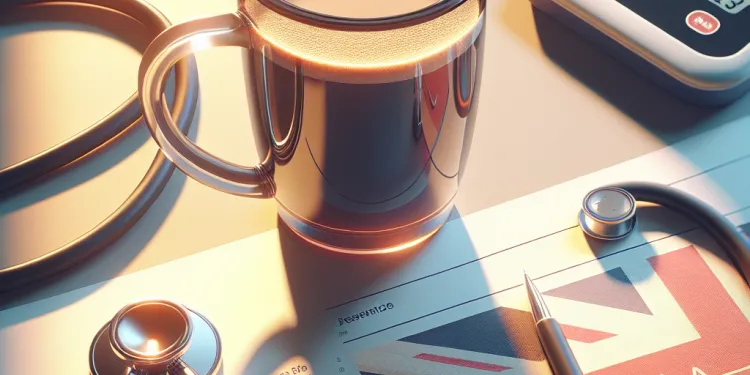
Does drinking coffee every morning increase the risk of developing high blood pressure?
Relevance: 30%
-
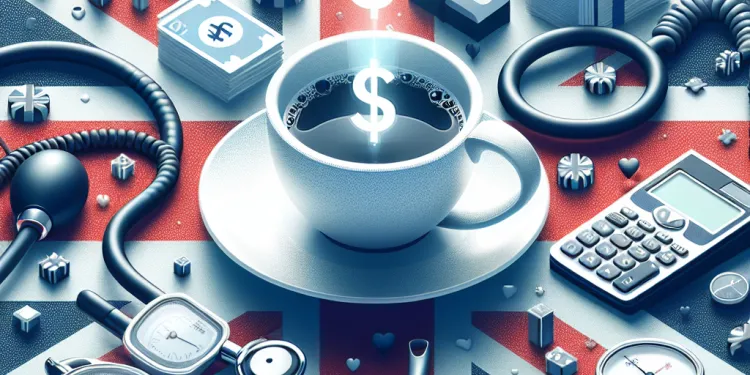
Does caffeine affect blood pressure?
Relevance: 26%
-
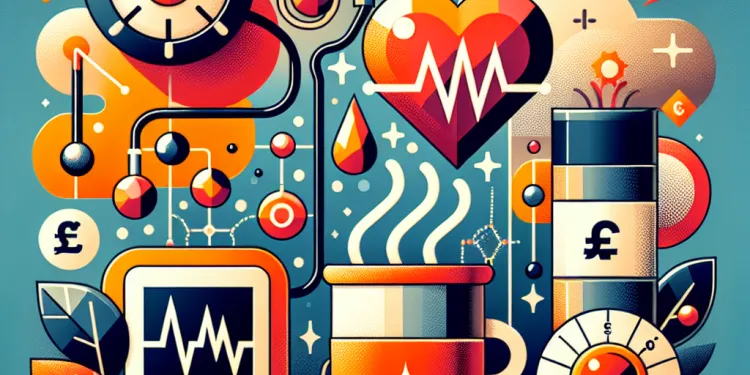
How does caffeine affect blood pressure?
Relevance: 25%
-

Can high blood pressure be prevented?
Relevance: 25%
-
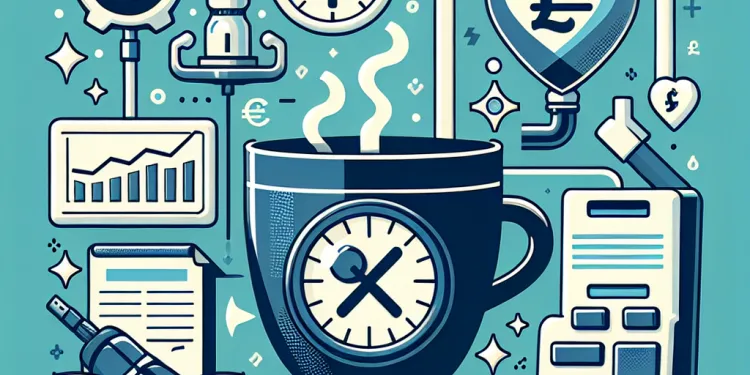
Can decaffeinated coffee affect blood pressure?
Relevance: 25%
-
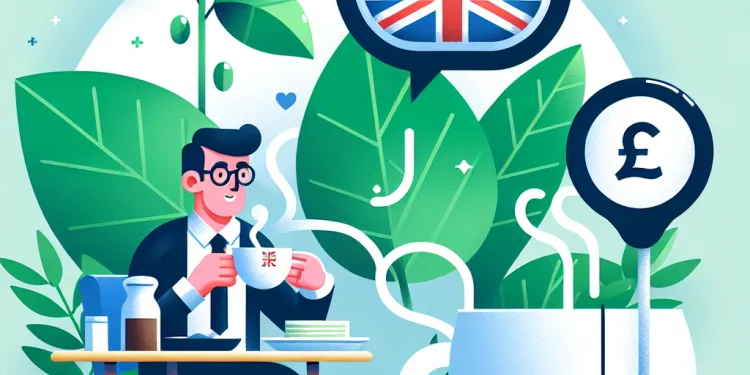
Is green tea a better alternative to coffee for blood pressure management?
Relevance: 24%
-
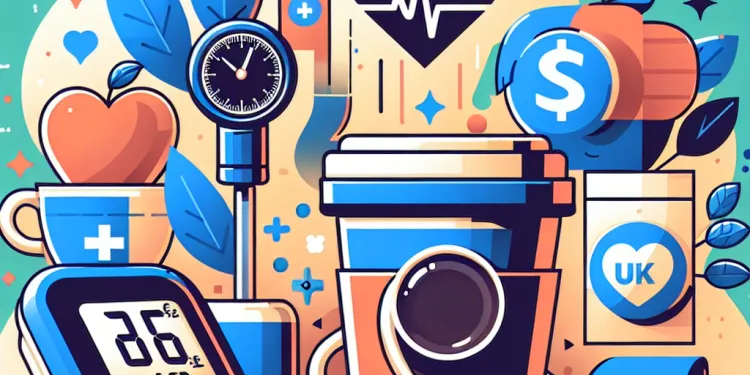
How can one minimize the impact of coffee on blood pressure?
Relevance: 24%
-
Are high caffeine drinks safe?
Relevance: 23%
-
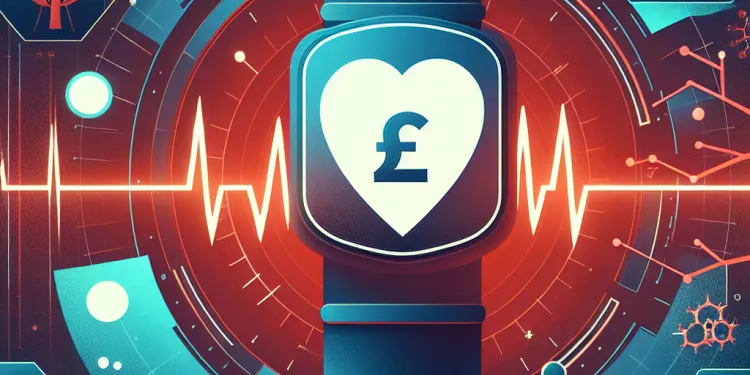
What causes high blood pressure?
Relevance: 23%
-
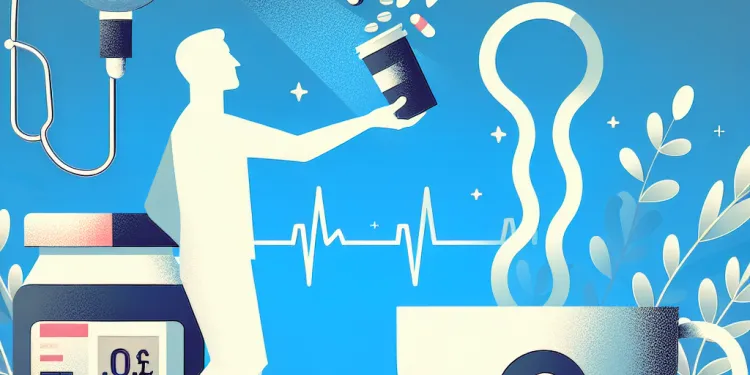
Is it safe to take blood pressure medication with coffee?
Relevance: 23%
-
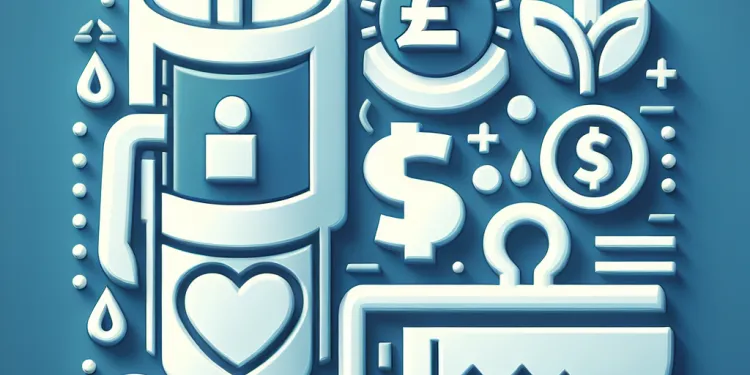
How much caffeine is generally considered safe for people with high blood pressure?
Relevance: 22%
-
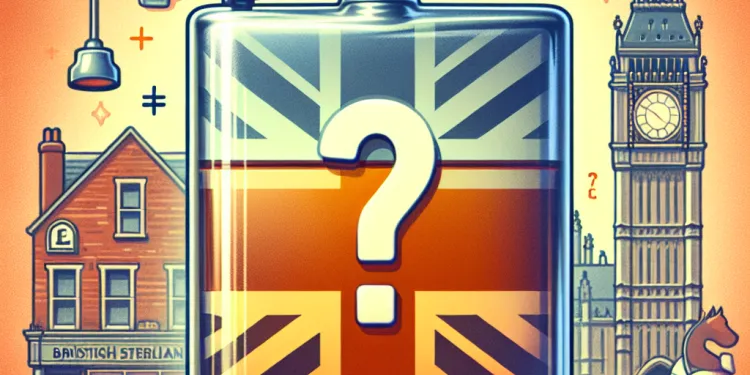
How do I know if my drink was spiked?
Relevance: 22%
-
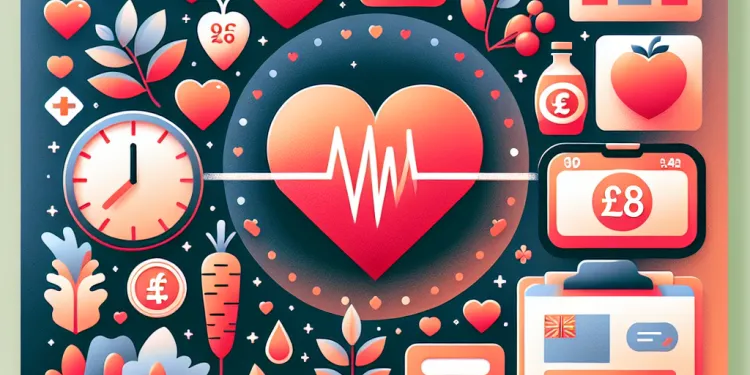
What lifestyle changes can lower blood pressure?
Relevance: 22%
-
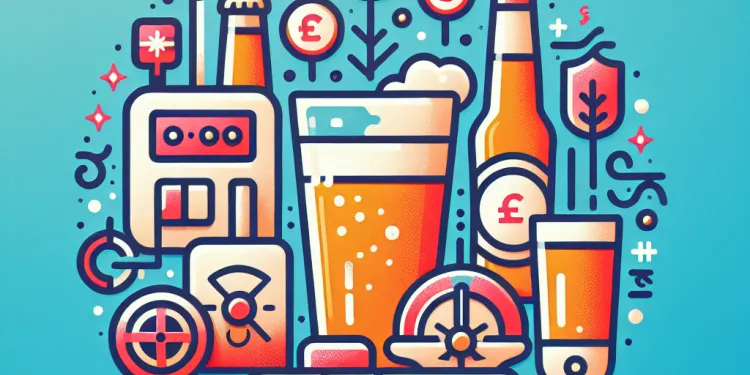
How effective are drink testing kits?
Relevance: 21%
-

Are men at risk of having their drinks spiked?
Relevance: 21%
-

Is there a specific time of day when coffee has the most impact on blood pressure?
Relevance: 21%
-
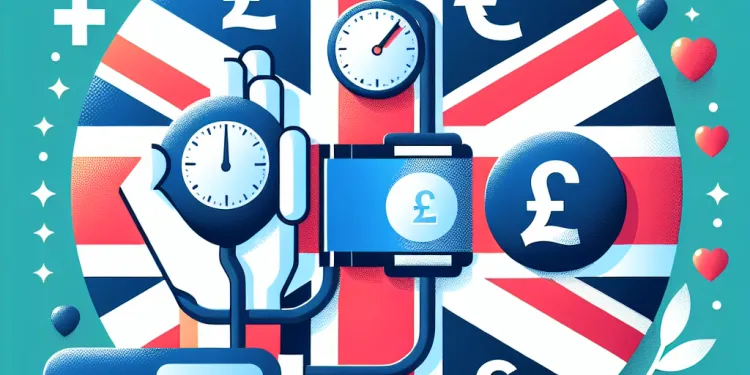
What is high blood pressure?
Relevance: 21%
-

Are there any self-tests for eye pressure?
Relevance: 21%
Introduction to Peer Pressure and Binge Drinking
Peer pressure plays a significant role in shaping various behaviours among individuals in social contexts, especially among young people. In the UK, binge drinking is a prevalent issue, and the influence of peers can be a crucial factor in the initiation and continuation of this behaviour. Understanding the role of peer pressure in binge drinking is essential for developing effective interventions to combat its negative effects.
Understanding Peer Pressure
Peer pressure refers to the influence exerted by a person's social group to change their attitudes, values, or behaviours to conform to group norms. This influence can be explicit, where individuals feel directly coerced into acting in a certain way, or implicit, where the desire for social acceptance leads to behavioural changes. In the context of binge drinking, peer pressure often involves normalising excessive alcohol consumption within a social circle.
The Impact of Peer Pressure on Binge Drinking
Binge drinking, typically defined as consuming large amounts of alcohol in a short period, is often influenced by the desire to fit in with peers. Young people, particularly students, may feel the need to engage in binge drinking to be accepted or to avoid social exclusion. In the UK, where the drinking culture is prominent, peer pressure can manifest as encouragement to participate in drinking games or social events centred around alcohol consumption.
The impact of peer pressure can be both direct and indirect. Direct pressure might involve friends explicitly encouraging or daring someone to drink excessively. Indirectly, an individual may perceive that drinking heavily is the norm due to observations of friends' behaviour, leading to an internalised pressure to conform. This perceived pressure can significantly affect decision-making, often leading to riskier drinking behaviours.
Psychological and Social Factors
Several psychological and social factors mediate the influence of peer pressure on binge drinking. Self-esteem, the need for social acceptance, and the fear of missing out (FOMO) are powerful motivators that can amplify the effects of peer pressure. Adolescents and young adults might lack the confidence to resist peer pressure, particularly if they are new to social environments such as university settings.
Social identity theory suggests that individuals derive part of their identity from their peer groups. Thus, if binge drinking is a social norm within a group, members may engage in it to reinforce their social identity and enhance group cohesion. Additionally, the perception that peers approve of binge drinking can lower inhibitions and make individuals more susceptible to engaging in such behaviour.
Strategies to Mitigate Peer Pressure Influence
Addressing binge drinking associated with peer pressure requires effective strategies. Education about the risks of excessive drinking and developing skills for resisting peer pressure are critical. Encouraging young people to form supportive networks and engage in alternative, alcohol-free social activities can also reduce reliance on drinking as a social tool.
Moreover, policy interventions, such as responsible drinking campaigns, can help shift cultural norms around alcohol consumption. By understanding the dynamics of peer pressure, interventions can be tailored to empower individuals to make informed decisions about their drinking behaviours.
Conclusion
In conclusion, peer pressure is a significant factor contributing to binge drinking, particularly among young people in the UK. Addressing this issue requires a comprehensive approach that includes education, support networks, and cultural change to foster environments where individuals can make autonomous, healthy choices about alcohol consumption.
Introduction to Peer Pressure and Binge Drinking
Peer pressure is when friends try to make you do something. It is especially important for young people and how they act. In the UK, binge drinking, which is drinking a lot in a short time, is a big problem. Friends can make you start and keep doing this. It's important to know how friends affect drinking to help stop it from being bad.
Understanding Peer Pressure
Peer pressure is when friends make you change how you think or act. It can be direct, like when someone tells you to do something, or indirect, like when you change just because you want to fit in. When it comes to binge drinking, friends might make drinking a lot seem normal.
The Impact of Peer Pressure on Binge Drinking
Binge drinking means drinking a lot of alcohol quickly. Young people might do this to fit in with friends. In the UK, there is a strong drinking culture, and friends might push others to join in drinking games or parties with lots of alcohol.
Peer pressure can be direct, like when friends challenge you to drink more. Or it can be indirect, like when you see friends drinking and feel you should too. This can make people drink more and take risks with their health.
Psychological and Social Factors
Things like self-esteem and wanting to fit in make peer pressure stronger. Fear of missing out, or FOMO, also makes it hard to say no. Young people might feel unsure or new at university and give in to peer pressure.
Our identities come from our friends too. So if a group drinks a lot, others might join to feel like they belong. If everyone thinks drinking is okay, people are more likely to drink because they think everyone approves.
Strategies to Mitigate Peer Pressure Influence
To stop binge drinking, we need good strategies. Teaching young people about the dangers of drinking too much and how to say no to friends is important. Finding fun, alcohol-free activities can help too.
Policies like responsible drinking campaigns can change how people think about alcohol. Knowing how friends affect drinking helps create better ways for young people to choose not to drink too much.
Conclusion
In conclusion, friends can make binge drinking a big issue, especially for young people in the UK. We need to educate, support, and change how people see alcohol, so young people can choose healthy options on their own.
Frequently Asked Questions
What is peer pressure?
Peer pressure is the influence exerted by a peer group on its individual members to conform to the group's norms, values, and behaviors.
How does peer pressure relate to binge drinking?
Peer pressure can encourage individuals to engage in binge drinking to fit in, gain social acceptance, or avoid ridicule from peers.
Can peer pressure lead to binge drinking among teenagers?
Yes, teenagers may succumb to peer pressure to binge drink as they seek approval and friendship from their peers.
What are some common signs of peer pressure related to drinking?
Common signs include feeling compelled to drink more than comfortable, drinking to fit in, and fear of being left out if not participating.
Is peer pressure always direct when it comes to drinking?
No, peer pressure can be both direct and indirect, such as subtle social cues or the perceived expectation to drink.
Can peer pressure affect both men and women equally in terms of drinking?
While both men and women can experience peer pressure, the influence and response can vary based on gender norms and social contexts.
Do college environments increase the risk of binge drinking due to peer pressure?
Yes, college environments often create situations where peer pressure exacerbates the incidence of binge drinking.
How can one resist peer pressure to binge drink?
Strategies include confidently saying no, associating with supportive friends, and engaging in social activities that do not involve drinking.
Does peer pressure only occur in young adults?
While it is more prevalent in teenagers and young adults, peer pressure can affect individuals of all ages.
Why do individuals give in to peer pressure to binge drink?
Individuals might fear social exclusion, wish to gain social acceptance, or lack confidence to say no.
Are there cultural factors that influence peer pressure in drinking?
Yes, cultural norms regarding alcohol consumption can shape the degree and type of peer pressure experienced.
Can family intervention reduce peer pressure related binge drinking?
Yes, family support and open communication can mitigate the effect of peer pressure on binge drinking.
What role does social media play in peer pressure to binge drink?
Social media can amplify peer pressure by normalizing heavy drinking behaviors and showcasing them as desirable.
How do peer dynamics contribute to binge drinking?
Group dynamics, including groupthink and conformity pressures, can promote binge drinking among peers.
Can educational programs help counteract peer pressure to binge drink?
Yes, educational programs that raise awareness about peer pressure and drinking can empower individuals to make better decisions.
What psychological factors make someone vulnerable to peer pressure in drinking?
Low self-esteem, a strong desire for social acceptance, and fear of rejection can make one more susceptible to peer pressure.
Are there peer support groups that help with resisting binge drinking?
Yes, peer support groups and sober networks can provide a supportive environment to resist binge drinking.
What impact does peer pressure have on long-term drinking habits?
Peer pressure can establish patterns of binge drinking that may lead to long-term alcohol dependency.
Can changing one's peer group influence drinking behaviors?
Yes, associating with peers who do not prioritize drinking can reduce the urge and necessity to binge drink.
How can schools help in reducing peer pressure related to binge drinking?
Schools can provide education on the effects of alcohol, promote alcohol-free social events, and foster environments where students feel confident in making individual choices.
What is peer pressure?
Peer pressure is when friends make you do things.
Friends may ask you to do what they do.
You might not want to do it.
But you do it to fit in with them.
Remember, you can say no.
Talk to a trusted adult if you feel worried.
Peer pressure is when friends or people your age try to get you to act like them. They might want you to do the same things they do or believe the same things they believe.
How can friends lead to drinking too much?
Sometimes, friends can make us feel like we have to drink a lot. This is called peer pressure. It means we do things because our friends are doing them.
If your friends drink a lot, you might feel like you have to drink a lot too. This can be unsafe.
If someone tries to make you drink too much, you can say no. It's okay to make your own choices.
Talking to a trusted adult or a friend who understands can help. You can also try practicing saying "no" with someone you trust.
Friends can sometimes make you feel like you need to drink a lot of alcohol to be part of the group. This is called peer pressure. You might think you have to drink to make friends, fit in, or to stop people from making fun of you.
Can friends make teenagers drink too much alcohol?
Yes, sometimes teenagers drink too much alcohol because their friends do it. They want to fit in and be liked by their friends.
What are signs that friends might be pushing you to drink?
Here are some signs that might show friends are pushing you to drink alcohol:
- Your friends say you have to drink to fit in with them.
- They make fun of you if you don’t drink.
- Your friends always want to meet where drinking is happening.
- They tell you everyone else is drinking, so you should too.
If you feel unsure or pressured, talk to a trusted adult or friend. You can use tools or apps to help you decide what is right for you. Remember, it's okay to say no.
Here are some signs to watch for:
- Feeling like you have to drink even if you don't want to.
- Drinking because you want to fit in with others.
- Worrying about being left out if you don't drink.
Remember, it's okay to ask for help if you feel this way. Talking to someone you trust can make a big difference.
Do friends always ask you to drink?
Sometimes friends might ask you to drink. This is direct peer pressure.
But sometimes you just see them drinking, and you feel like you should too. This is not direct, but it can still be peer pressure.
If you feel unsure, it's okay to say no. Talk to a trusted adult or use apps that help you make good choices.
No, peer pressure can happen in different ways. It can be direct, like someone telling you to do something. It can also be indirect, like when you feel you should do something because others are doing it, even if no one says anything.
Can peer pressure make men and women drink the same amount?
Boys and girls feel peer pressure, but it can be different for them because of how society expects them to act.
Do colleges make students drink a lot because of friends?
Colleges are places where people study after high school. A college environment is what it is like there.
Sometimes, students might drink a lot of alcohol. We call this 'binge drinking'.
This question asks if students drink too much because their friends make them feel like they have to join in.
Helpful Tips
- Talk to a teacher or counselor if you feel pressured.
- Say no if you don't want to drink.
- Spend time with friends who respect your choices.
Yes, being in college can often lead to situations where other students might encourage you to drink too much alcohol.
How to Say No to Friends Who Want You to Drink Too Much?
Sometimes friends might want you to drink a lot. It's okay to say no.
Here are some tips to help you:
- Practice saying "No, thanks" in a strong voice.
- Stay with friends who don’t drink a lot.
- Think of fun things to do that don't need drinking.
- If you feel unsure, talk to an adult you trust.
You can also try using apps that help you make safe choices.
Here are some tips:
- Say "No" firmly if you don't want to drink.
- Spend time with friends who make good choices.
- Do fun things with others that don’t involve alcohol.
Does peer pressure happen only to young people?
Peer pressure can happen to everyone, not just young people. It is when people feel they have to do the same as their friends. People of all ages can feel peer pressure.
To help with peer pressure, try to:
- Talk to someone you trust about how you feel.
- Practice saying "no" in a polite way.
- Choose friends who respect your choices.
Peer pressure is when people try to make you do something. It happens a lot with teenagers and young adults. But it can happen to anyone, no matter how old you are.
Why do people drink too much when their friends do?
People might be scared of being left out, want to make friends, or not feel brave enough to say no.
Do different cultures affect how friends make us drink alcohol?
Yes, what people in a culture think about drinking alcohol can change how much peer pressure you feel and what kind.
Can families help stop binge drinking caused by peer pressure?
Binge drinking means drinking a lot of alcohol in a short time. Sometimes, friends make us feel like we have to drink a lot to fit in. This is called peer pressure.
Families can help us say no to drinking too much. They can talk to us about why it's important to drink safely, if at all.
To make it easier to say no to peer pressure, we can:
- Talk with our family about how to handle peer pressure.
- Practice saying "no" in a strong voice.
- Stay with friends who don't push us to drink.
- Think of fun activities that don't involve drinking, like playing games or sports.
Our family can be a big help in keeping us safe and making good choices.
Yes, family support and talking openly can help stop the pressure to drink too much.
How does social media make people feel like they have to drink too much alcohol?
Social media can make peer pressure stronger. It can make heavy drinking seem normal and something people want to do.
How do friends affect heavy drinking?
Friends can sometimes make us want to drink more. When we see our friends drinking a lot, we might think it's okay to do the same.
It is important to talk to your friends about how much you drink. You can remind each other to stay safe.
If you find it hard to say no to drinking too much, you can ask a trusted adult for help. They can help you learn ways to say no.
Sometimes, when people are in a group, they feel like they need to act like everyone else. This can make them drink too much alcohol because everyone else is doing it.
Can school lessons help stop kids from drinking too much because of friends?
Yes, learning programs can help people understand peer pressure and drinking. These programs teach people to make good choices.
Why do some people find it hard to say 'no' to friends when it comes to drinking?
Some people find it hard to say 'no' to drinking with friends. Let's look at why:
- Feeling Alone: People want to fit in and be liked. They might be scared of being left out.
- Low Confidence: Some people don't feel sure about themselves. They say 'yes' even when they want to say 'no'.
- Wanting Approval: People like to hear "Well done!" from friends. They drink to make others happy.
- Stress: Feeling worried or stressed can make it hard to say 'no'.
Here are some ways to help:
- Practice Saying 'No': Try saying 'no' in front of a mirror to get better at it.
- Choose Friends Wisely: Spend time with friends who respect your choices.
- Relax: Do things that help you feel calm, like drawing or listening to music.
Sometimes, people can feel bad about themselves or worry about how others see them. This can make them want to fit in with others so they won't be left out.
Are there groups of people who help each other stop drinking too much alcohol?
Some people like to drink too much alcohol at once. This can be bad for your health.
If you want to drink less, you can find a group of people to help you. These groups are called support groups. In a support group, people talk to each other and share tips on drinking less.
Here are some things that can help:
- Talk and listen to other people who have the same problem
- Make a plan together to drink less
- Use apps or write in a diary to track your drinks
- Ask a friend to help you when you want to drink too much
Yes, joining a group with friends or people like you can help you stop drinking too much. These groups support each other and make it easier not to drink too much.
How does peer pressure affect drinking over a long time?
Friends can sometimes make you drink too much alcohol. Drinking a lot can become a habit and might make it hard to stop drinking in the future.
Can friends change how much someone drinks?
Yes, spending time with friends who do not like drinking a lot can help you stop wanting to drink too much.
What can schools do to stop kids from drinking too much because of friends?
Schools can teach about what alcohol does to your body. They can also plan fun activities without alcohol. Schools should help students feel comfortable making their own choices.
Useful Links
This website offers general information and is not a substitute for professional advice.
Always seek guidance from qualified professionals.
If you have any medical concerns or need urgent help, contact a healthcare professional or emergency services immediately.
Some of this content was generated with AI assistance. We’ve done our best to keep it accurate, helpful, and human-friendly.
- Ergsy carfully checks the information in the videos we provide here.
- Videos shown by Youtube after a video has completed, have NOT been reviewed by ERGSY.
- To view, click the arrow in centre of video.
- Most of the videos you find here will have subtitles and/or closed captions available.
- You may need to turn these on, and choose your preferred language.
- Go to the video you'd like to watch.
- If closed captions (CC) are available, settings will be visible on the bottom right of the video player.
- To turn on Captions, click settings .
- To turn off Captions, click settings again.
More Items From Ergsy search
-

What is the role of peer pressure in binge drinking?
Relevance: 100%
-

Are there cultural factors in binge drinking?
Relevance: 67%
-

What is binge drinking?
Relevance: 64%
-

How is binge drinking typically defined?
Relevance: 64%
-

Why is binge drinking common among young adults?
Relevance: 63%
-

How can one reduce the risk of binge drinking?
Relevance: 61%
-

What are the social consequences of binge drinking?
Relevance: 60%
-

Can binge drinking lead to addiction?
Relevance: 59%
-

Is binge drinking more common in any specific demographic?
Relevance: 58%
-

What can be done to prevent binge drinking?
Relevance: 56%
-

What are the risks associated with binge drinking?
Relevance: 55%
-

Can binge drinking affect physical health?
Relevance: 54%
-

How does binge drinking affect the brain?
Relevance: 54%
-

How does alcohol tolerance relate to binge drinking?
Relevance: 53%
-

Are there any laws against binge drinking?
Relevance: 52%
-

What resources are available for someone struggling with binge drinking?
Relevance: 52%
-

How does binge drinking impact academic or work performance?
Relevance: 50%
-

How does binge drinking affect mental health?
Relevance: 49%
-

What are the signs of binge drinking?
Relevance: 41%
-

How soon after drinking coffee can blood pressure be affected?
Relevance: 32%
-

What is the role of peer support in preventing grooming?
Relevance: 31%
-

What are peer support groups for community helpers?
Relevance: 31%
-

Does drinking coffee every morning increase the risk of developing high blood pressure?
Relevance: 30%
-

Does caffeine affect blood pressure?
Relevance: 26%
-

How does caffeine affect blood pressure?
Relevance: 25%
-

Can high blood pressure be prevented?
Relevance: 25%
-

Can decaffeinated coffee affect blood pressure?
Relevance: 25%
-

Is green tea a better alternative to coffee for blood pressure management?
Relevance: 24%
-

How can one minimize the impact of coffee on blood pressure?
Relevance: 24%
-
Are high caffeine drinks safe?
Relevance: 23%
-

What causes high blood pressure?
Relevance: 23%
-

Is it safe to take blood pressure medication with coffee?
Relevance: 23%
-

How much caffeine is generally considered safe for people with high blood pressure?
Relevance: 22%
-

How do I know if my drink was spiked?
Relevance: 22%
-

What lifestyle changes can lower blood pressure?
Relevance: 22%
-

How effective are drink testing kits?
Relevance: 21%
-

Are men at risk of having their drinks spiked?
Relevance: 21%
-

Is there a specific time of day when coffee has the most impact on blood pressure?
Relevance: 21%
-

What is high blood pressure?
Relevance: 21%
-

Are there any self-tests for eye pressure?
Relevance: 21%


